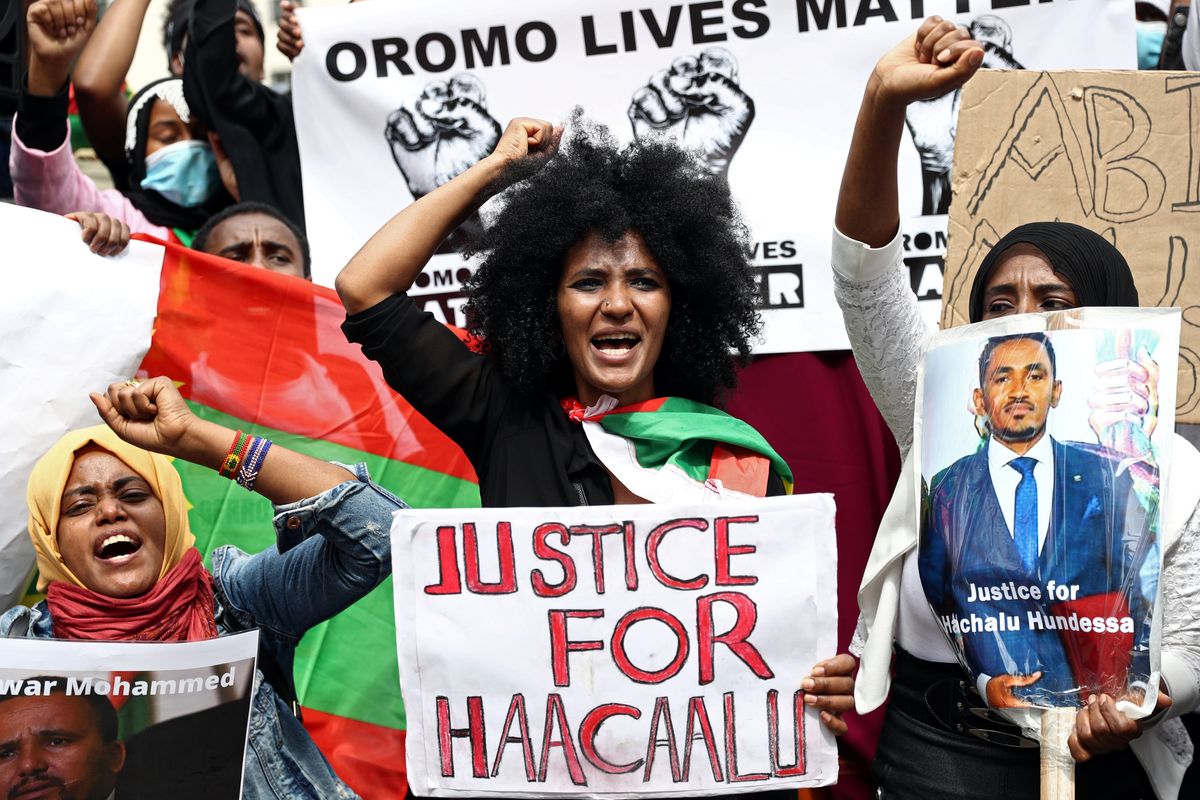Ethiopian PM cracks down on opposition: Ethiopia's most prominent opposition leader, Jawar Mohammed, was one of 24 political opponents charged with a series of crimes in Ethiopia in recent days, including terrorism-related offenses. The charges relate to civil unrest that erupted this past summer in Addis Ababa, Ethiopia's capital, as well as the Oromia region that left at least 160 people dead. While ethnic tensions have intensified in the country in recent years, violence surged in late June after the killing of Hachalu Hundessa, a popular singer and activist whose songs called for the liberation and empowerment of the Oromo, the country's largest ethnic group. Jawar Mohammed, a former ally of Prime Minister Abiy Ahmed, is a hero to many disaffected Oromo, and his jailing since July has raised concerns about an intensifying crackdown by the government. Critics say that while Abiy, who won a Nobel peace prize for making peace with neighboring Eritrea, has spearheaded ambitious political and economic reforms since coming to power in 2018, he has not done enough to alleviate ethnic violence and tensions in the fractious country.
Cuba faces food crisis: The island nation of Cuba fared well in the early months of the pandemic. A strong public health system and draconian quarantine measures — a police state helps with that — squelched the disease even as much richer nations struggled to contain its spread. Havana even sent its own doctors abroad to help more than a dozen other countries battle the virus. But the economic impact on the island since then has been devastating. Even before the pandemic, the country's badly mismanaged, state-dominated economy was suffering as the Trump administration tightened long-standing sanctions. Turmoil in Venezuela, meanwhile, led to a decrease in the shipments of cheap oil that the Maduro regime in Caracas sends its ideological pals in Havana. Now, a pandemic-driven collapse in tourism —the island's main source of hard currency — has left the government scrambling to amass enough dollars to purchase the food imports that meet two-thirds of the country's food needs. Cuba is facing its most acute economic crisis since the so-called "special period" of the 1990s, when the collapse of the Soviet Union, Cuba's main patron, plunged the island into a harrowing decade of poverty.
US military beefs up Syria presence to counter... Russia? The Pentagon has announced that it will deploy about 100 additional US troops in Syria in order to "ensure the safety" of US-led forces there. The move comes just a few weeks after seven American soldiers were injured when their convoy was hit by a Russian vehicle (in an open field) in northeastern Syria. Although run-ins between troops from the two countries are not uncommon amid the chaos of the decade-long Syrian civil war, and the Pentagon did not cite Russia as the reason to boost the US military contingent in the country, a senior US official called out recent Russian misbehavior, saying it "got us into a dangerous situation" on the ground. President Trump — who controversially decided to withdraw US forces from northern Syria a year ago — has pledged to bring home US troops from "endless wars," but he also is fond of keeping US troops in Syria to protect oil fields, he says. The Pentagon, meanwhile, is still keen to assist Kurdish fighters battling the Islamic State. All this comes as the White House has yet to respond to the allegations of Russian bounties to kill US soldiers in Afghanistan. If the new deployment is indeed meant to send a signal to the Kremlin, we're watching to see what the response is.



















